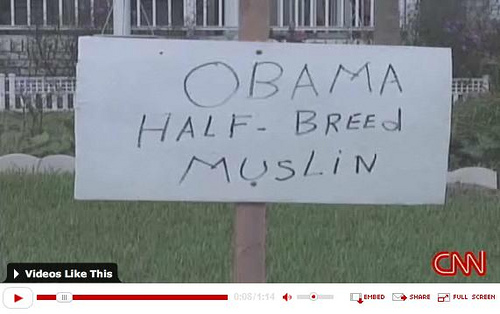Muslim Film Festival

Now that the main Republican talking point has been refined from “Osama
is an elitist" to “Osama is a terrorist,” it’s only a matter of time before they
bring up the old canard about him being a Muslim. Which begs the question -- so
what if he is? Nobody running for President lately has been excoriated for
being Catholic, or Jewish, or Mormon, or whatever religion
believes that man walked with dinosaurs and preachers should run witches out of
town. Clearly, when some voters confuse the religion with a common textile,
some attempt at education is in order.
Thus the relevance of a couple of film festivals taking place
these days in the area. The Palestinian Film Festival, already underway at
various venues including the Harvard Film Archive and the Museum of Fine Arts,
features on Friday a lecture at Northeaster University on Palestinian Cinema by
veteran auteur Michel Khlefli, whose visually striking and profoundly affecting
Wedding in Galilee, in which Palestinians and Israeli soldiers achieve a reconciliation
of sorts at the title nuptials, 
also screens on Saturday at the MFA.
The second event is The Muslim Film Festival: Art Under Fire!
which opens Monday with Nina Davenport’s mordant, sad and hilarious “Operation
Filmmaker,” a
microcosmic look at the Iraq
debacle through the experience of a young Iraqi looking for a break in Hollywood. That’ll screen
at the Brattle Theatre.
Another high point is
Jocelyne Saab’s“Dunia” (2005) in which the young Egyptian woman of the
title is torn between pursuing the dance career of her late mother, studying
poetry with a charismatic professor who crusades for artistic freedom, and
marrying an asshole. Though suffering from occasional kitsch, platitudes and
tweeness, the film more than compensates for these weaknesses with some
stunning images and a real feel for the ambience and atmosphere of Cairo. It even-handedly
shows some of the less attractive aspects of Egyptian culture, such as female
circumcision, sexual repression and violent intolerance. But it also touches on
a side of Islam that doesn’t get much play in the West these days, most notably
the Sufi tradition that emphasizes the power of love, self-fulfillment and
ecstasy.
It screens at the Egan Center at Northeastern University
and like all the films in the festival, it’s free. 